Settled within the stunning landscapes of East Java, the Tengger tribe is one of Indonesia’s most fascinating indigenous communities. Known for their strong cultural identity and deep-rooted traditions, the Tengger people inhabit the highlands surrounding Mount Bromo, an iconic volcano that draws visitors from around the world. Their unique way of life, spirituality, and commitment to preserving ancestral traditions make the Tengger tribe a vital cultural heritage of the region.
Tengger Tribe Rituals Preserving Mount Bromo's Heritage
The Tengger tribe traces its ancestry back to the remnants of the Hindu Majapahit Kingdom, which once flourished in Java before the rise of Islam. The name "Tengger" itself is believed to originate from the combination of two legendary figures, Roro Anteng and Joko Seger, whose descendants are considered the tribe's forebears. Predominantly Hindu, the Tengger people have a distinct blend of spiritual practices, combining Hinduism with indigenous rituals that emphasize harmony with nature.
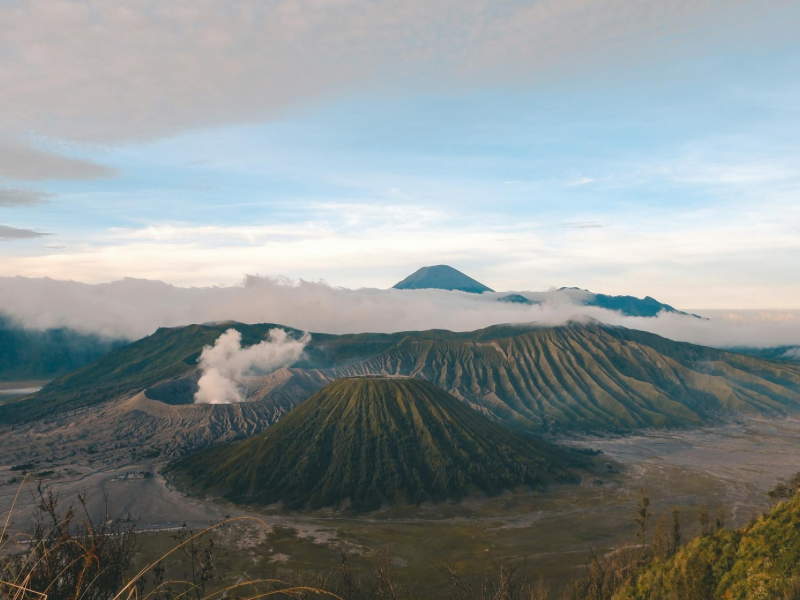
As visitors flock to Mount Bromo to witness its dramatic scenery, the Tengger tribe reminds us of the importance of preserving culture and tradition. Living at altitudes of 2,000 meters above sea level, the Tenggerese primarily rely on agriculture, cultivating potatoes, cabbages, and other crops well-suited to the volcanic soil. Their daily lives revolve around their spiritual beliefs and community traditions, many of which have been passed down for generations. Here are the prominent traditions practiced by the Tengger people
Yadnya Kasada (Kasodo Ceremony)
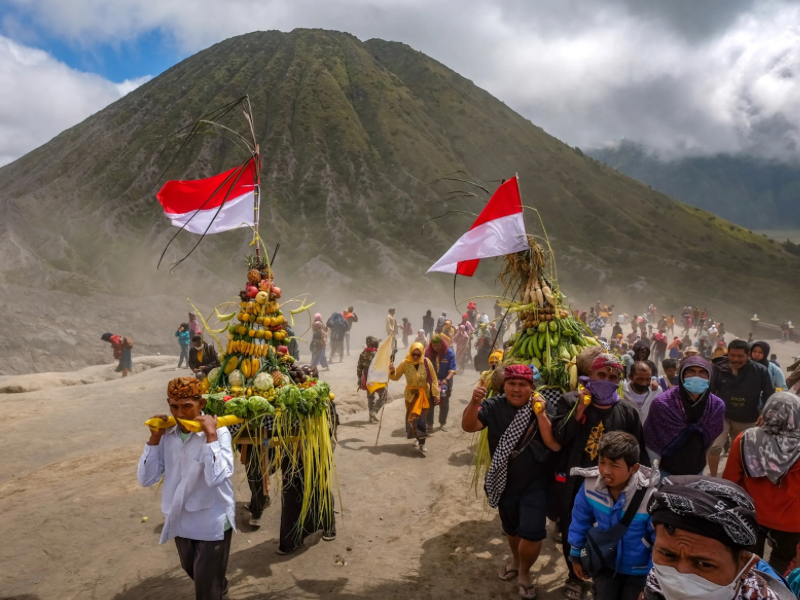
Perhaps the most famous of Tengger traditions, the Yadnya Kasada ceremony takes place annually at Mount Bromo. This ritual is held to honor their ancestors and offer gratitude to the gods for their blessings. During the ceremony, offerings such as fruits, vegetables, livestock, and other goods are thrown into the crater of Mount Bromo. The offerings symbolize the Tenggerese’s devotion and their connection to the spiritual realm. Villagers gather at Pura Luhur Poten, a Hindu temple at the base of the volcano, to perform prayers and rituals before making the trek to the crater. The event also attracts tourists who are captivated by its spiritual significance and dramatic setting.
Karo Festival
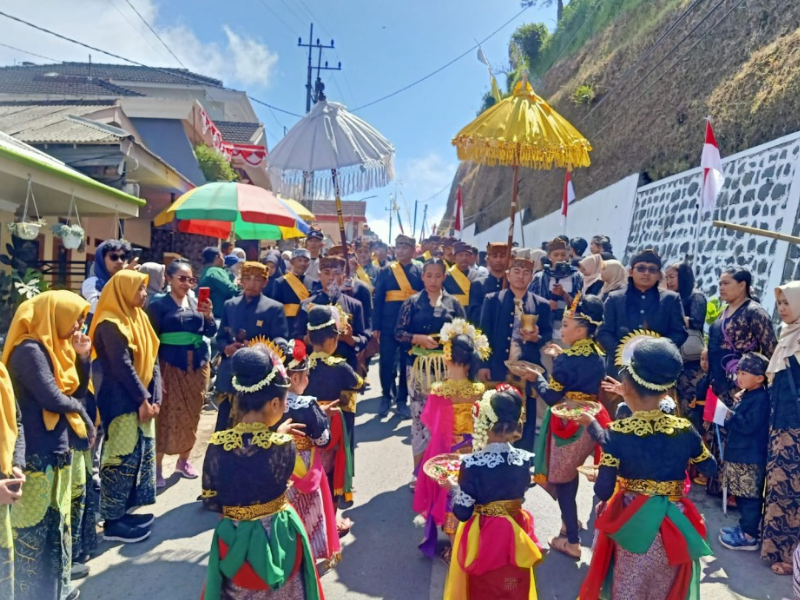
Karo is the Tengger tribe’s version of a thanksgiving festival, celebrated to strengthen family and community bonds. This festival, which lasts for two days, is marked by rituals, traditional music, and communal feasts. Families prepare offerings and gather to pray at Pura Luhur Poten or other sacred sites. The festival also serves as a time for Tenggerese to resolve conflicts, reconnect with distant relatives, and reflect on the year’s blessings. Traditional dances and music performances add to the festive atmosphere, showcasing the rich cultural heritage of the Tengger people.
Entas-Entas Ritual (Soul Cleansing Ceremony)
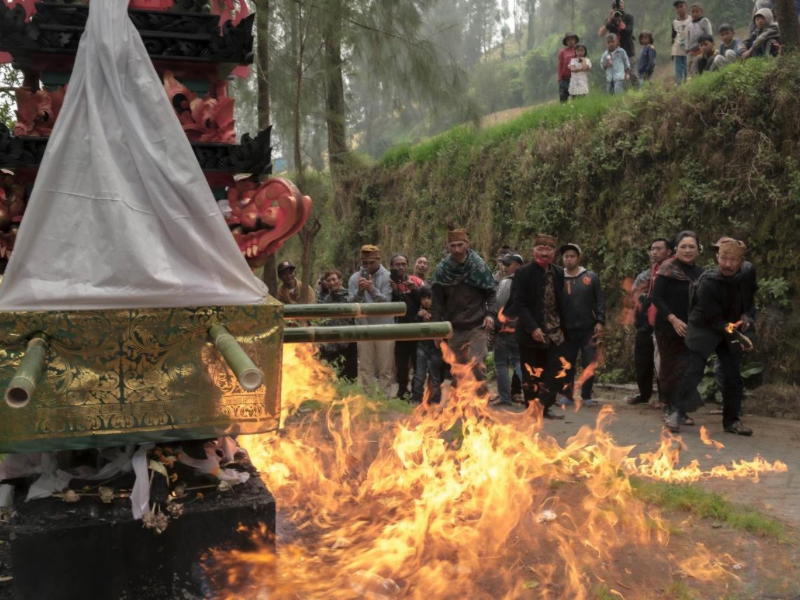
The Entas-Entas ritual is a spiritual cleansing ceremony held to honor the souls of deceased family members. This ritual reflects the Tenggerese’s belief in the afterlife and their commitment to ensuring that their ancestors rest in peace. During the ceremony, offerings and prayers are made to guide the departed soul to the next realm. The ritual is deeply emotional and serves as a reminder of the Tengger people’s enduring respect for their ancestors.
Tugel Kuncung Ceremony
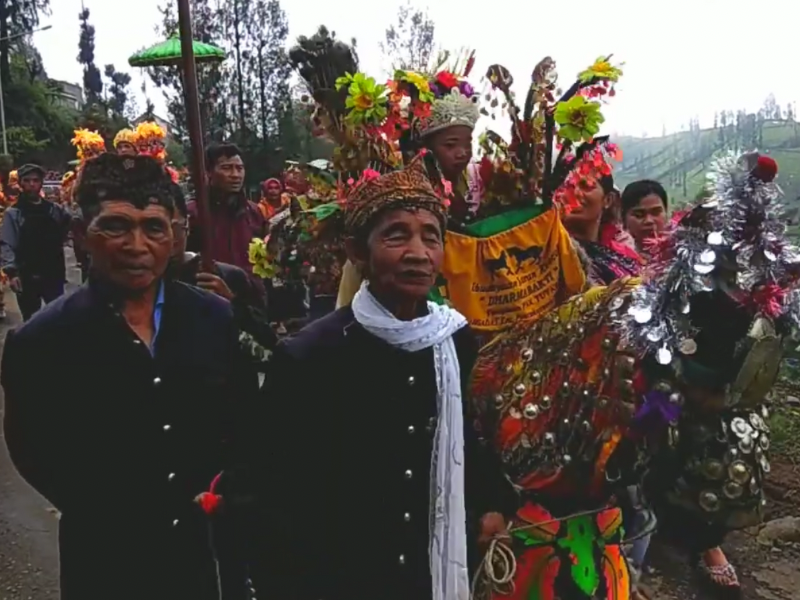
The Tugel Kuncung ritual is performed to mark a significant milestone in a child’s life. It involves cutting the child’s hair (kuncung) as a symbolic gesture of transition from infancy to childhood. This ceremony is deeply spiritual, as it signifies the purification and preparation of the child for future responsibilities within the community. The ritual includes prayers, offerings, and blessings to ensure the child’s well-being and prosperity.
Wedding Traditions in Tengger Culture
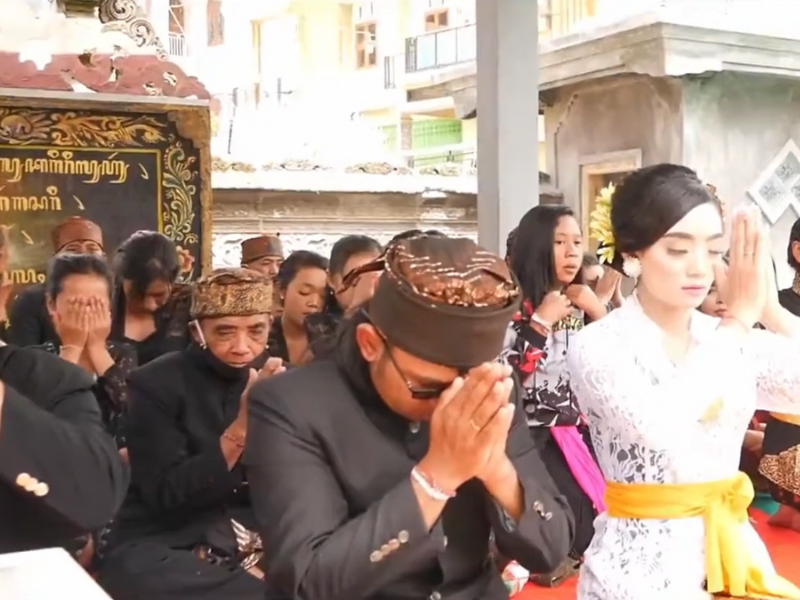
Marriage ceremonies in Tengger culture are elaborate and steeped in symbolism. The couple receives blessings from elders and participates in rituals that emphasize harmony, commitment, and respect for their ancestors. The wedding is usually conducted at home or a sacred site, accompanied by traditional music and feasts shared with the entire community. Weddings also serve as a social gathering, strengthening bonds among the Tenggerese.
Unan-Unan Ritual
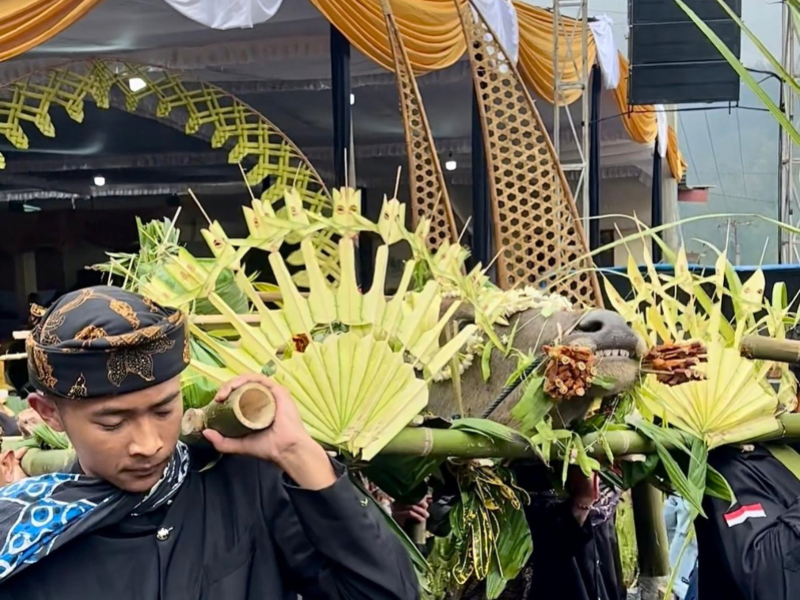
The Unan-Unan ritual is a purification ceremony held every five years to cleanse the community of misfortune and ensure collective well-being. This large-scale ritual involves prayers, offerings, and a series of processions led by community elders and spiritual leaders. The Unan-Unan is not only a spiritual event but also a celebration of unity among the Tengger people, reflecting their collective strength and shared values.



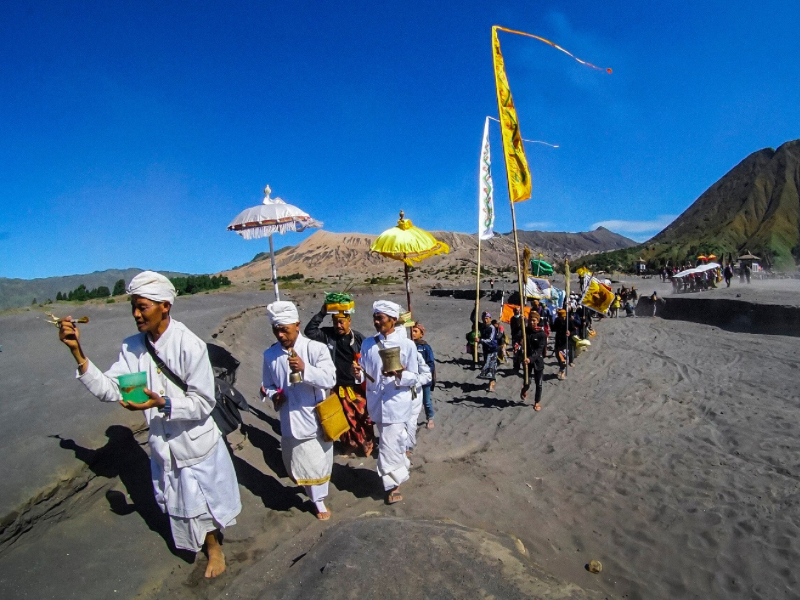
 Alicia Putri
Alicia Putri
 Dec 18, 2024
Dec 18, 2024